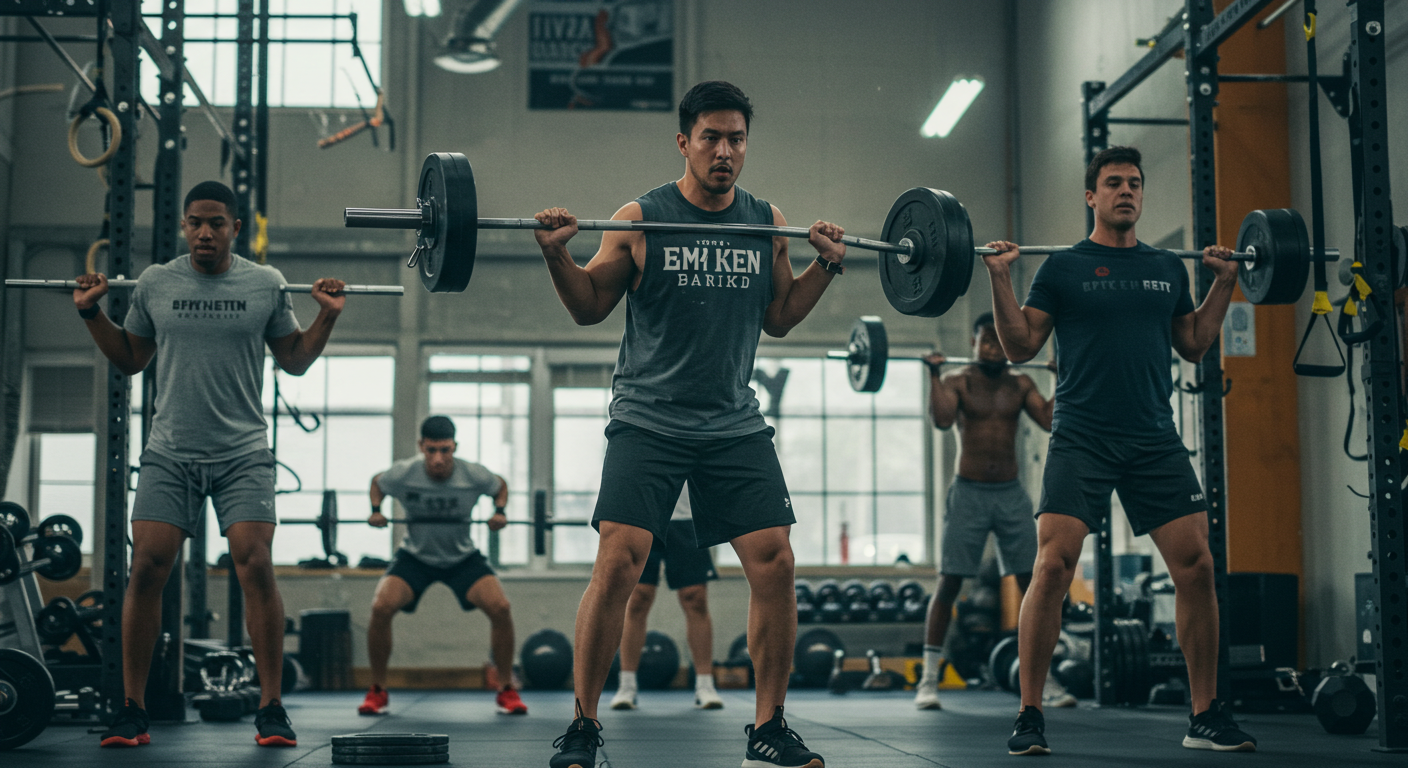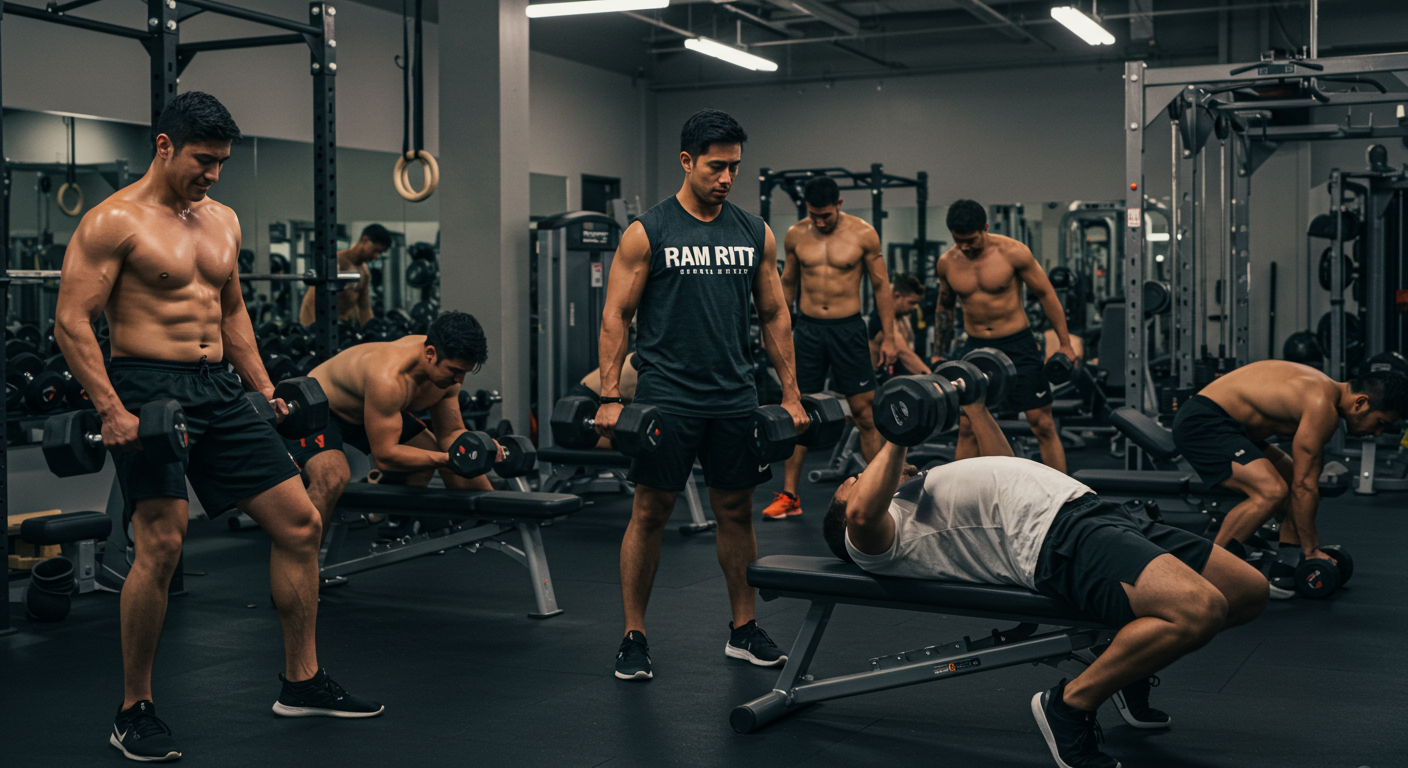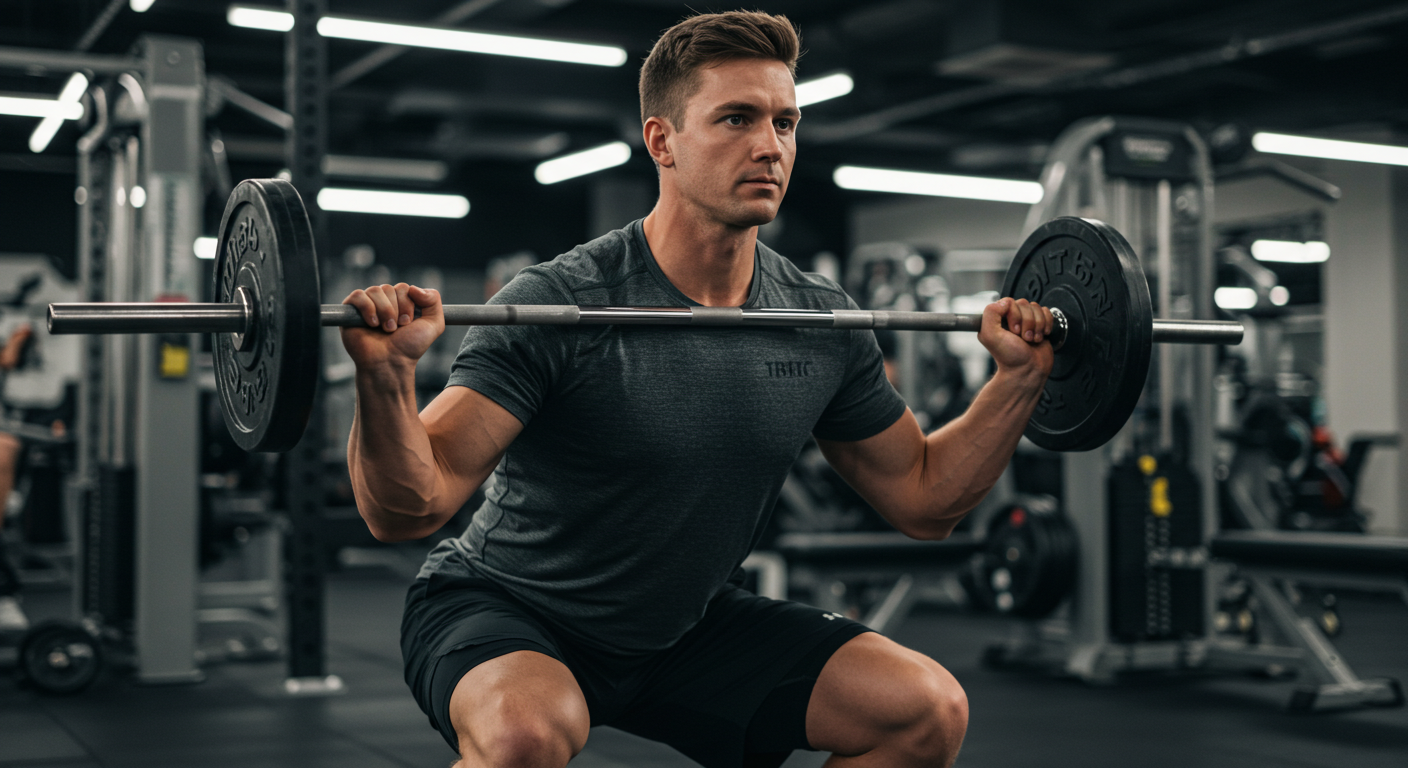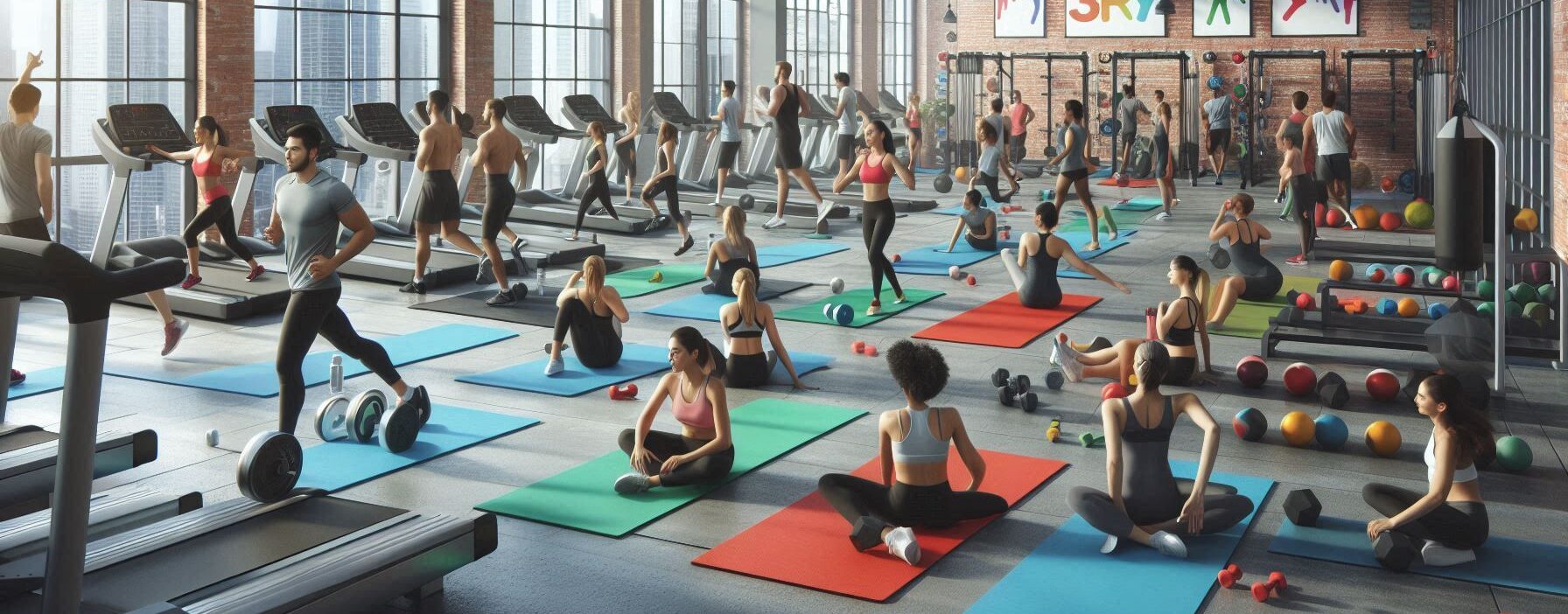A lot of people think that weight training is only for bodybuilders or fitness experts, but I’m here to tell you that it can be enjoyable and empowering! To be honest, the thought of lifting large things could scare you at first. But once you start, you’ll see that it’s less about being a superhero with big muscles and more about feeling powerful, sure of yourself, and maybe even a little like a rock star. So let’s get started!
Top Takeaways and Key Concepts
Start weight training to build strength and confidence, not just muscle size or appearance.
Learn basic compound exercises first like squats, deadlifts, presses, and rows for full-body results.
Follow a simple weekly plan with 2–3 training days and rest days to recover and grow stronger.
Fuel your body with protein-rich meals and water to support muscle growth and recovery.
Progress gradually and add variety to prevent plateaus and keep workouts fun and effective.
Summary of This Article
This article explains that weight training isn’t just for bodybuilders—it’s for anyone who wants to feel stronger, healthier, and more confident. It introduces weight training as resistance exercise using weights or bodyweight and highlights its many benefits, including boosting metabolism, preventing injury, improving daily strength, and enhancing mental health through endorphins. Beginners are encouraged to start with simple compound movements and consider working with a trainer to learn proper form. The article stresses the importance of a balanced workout plan, rest days, variety, good nutrition, and staying hydrated. In the end, it inspires readers to embrace strength training as a lifelong journey toward better fitness and self-confidence.
Video Summary
What Is Weight Training Anyway?
Please Note: This post may contain affiliate links. If you click one of them, we may receive a commission at no extra cost to you. As an Amazon Associate, I earn from qualifying purchases.

Shortcuts to Exercise Equipment Shopping at Amazon
Ellipticals - Exercise Bikes - Recumbent Bikes - Treadmills - Rowers
Dumbbells - Resistance Bands - Kettlebells - Benches - Pull-up Bars
You could be asking yourself what weight training is. In short, it’s the act of using resistance, like weights, to make your muscles stronger. This could include using machines at the gym, lifting dumbbells, or even completing workouts with your own body weight. Do you remember doing push-ups in gym class? Yes, that counts too!
A lot of people don’t understand weight training and assume it’s just for folks who want to get bigger muscles and look like bodybuilders. But here’s the deal: weight training is a great way for everyone to get fit, no matter what their goals are! It’s not only about getting bigger; it may also make you stronger and improve your overall health. It would be nice to be able to ascend stairs without getting out of breath or carry groceries in one trip instead of two.
Now let’s talk about some interesting benefits of training weights. To begin with, strength training has a remarkable influence on your metabolism. When you do resistance exercises to build muscle, you’re basically converting your body into a machine that burns calories! Muscles need more energy to stay strong than fat does. This means that even while you’re relaxing on the couch watching that new Netflix show (you know the one), your body is still working hard behind the scenes. It’s like having a personal trainer that works extra hours while you eat popcorn!
It’s interesting that this boost to your metabolism doesn’t only come right after you exercise weights; it can linger for hours or even days! People call this “afterburn,” but the scientific term is “excess post-exercise oxygen consumption” (EPOC). So every time you work out at the gym or at home, you’re getting ready to burn a lot of calories long after you’ve put down those dumbbells.
Weight training can also make you stronger in ordinary tasks, which is like getting ready for everyday life. Weight training makes it easier to do things like move large boxes or play with kids at the park. Also, it lowers the chance of injury by making joints and connective tissues stronger.
And don’t forget that weight training can be good for your mental health as well! When you practice strength training on a regular basis, your body releases endorphins, which are hormones that make you feel good. This can help you feel less stressed and anxious. Who knew that working out could make you feel better? You gain stronger physically and intellectually, which is a win-win situation.
Adding weight training to your routine might be just what you need, whether you want to tone up, build endurance, or just want to feel good while binge-watching your favorite shows without feeling guilty (because who doesn’t love eating snacks without worrying about calories?). Remember that being strong is the new sexy, and it has a lot of hidden benefits as well!
The Benefits of Weight Training

Let’s speak about why you should include weight training in your workout. To start, it helps us build muscular mass, which is important as we get older. Sorry to break it to you, but as we get older, we naturally lose muscular tissue. Lifting weights on a regular basis can greatly delay this process down.
Also, strength training isn’t only about looking good in those jeans, even while that’s a nice bonus. It also makes bones stronger and joints healthier. You’ll feel more stable as you do common things, like climbing stairs without having to catch your breath or carrying groceries without looking like a clumsy penguin.
Many studies have found that weight training can also greatly improve mental health, which is interesting. It’s not only about being stronger or looking nice in a tank top; the benefits go deep into our psyche. Your body releases endorphins, which are natural mood enhancers that make you feel warm and fuzzy inside, when you do things like lift weights. Who doesn’t appreciate the glow that comes after a workout? It’s like having a secret smile on your face all the time, even when you just finished the final few reps.
But let’s look more closely at how this works. When you work out, your brain doesn’t just sit there. It’s having fun right now! Exercise improves blood flow to the brain, which helps new neurons sprout, a process called neurogenesis. This implies that not only are you sweating out stress, but you’re also really helping your brain get stronger and healthier. So the next time you’re doing those last few deadlifts, remember that you’re not only working out your body; you’re also working out your mind!
Also, finishing a hard set of lifts feels really good. You know that feeling when you’ve lifted a heavy weight or done a hard workout? There’s nothing like it. It makes you feel like you’ve conquered the world! It’s impossible not to feel good about yourself after breaking personal records or just getting through a tough workout. That feeling of success can make you feel quite good about yourself and give you a lot of confidence.
And speaking of confidence, weight training has also been related to a better body image. When you start to notice improvements in your body, like toned arms or stronger legs, you start to appreciate what your body can do instead of focusing on what you think are shortcomings. This change in point of view is quite strong! You don’t compare yourself to others, which we all know is a dangerous thing to do. Instead, you enjoy your own accomplishments and successes.
Also, for some people, weight training is a sort of therapy since it gives them a chance to focus just on themselves and their goals without any outside distractions. It gives you a chance to clear your head and use your anger to lift heavy items instead of letting it build up like leftover pizza from last weekend’s party (yikes!).
So, whether you’re going to the gym by yourself or with a group where everyone cheers each other on (which is really motivating), keep in mind that every rep counts toward both building strength and improving your mental health. You can tell them that you lift weights not just for your biceps but also for your happiness the next time they ask. Who knew that getting fit could have such great side effects?
Getting Started: Basic Exercises

So, how do you begin this trip into the realm of weights? To be fair, all beginners should learn some basic exercises before moving on to more difficult ones that require acrobatics and maybe even a helmet. Squats, deadlifts, bench presses, and rows are all great workouts to start with.
Squats are great because they train a lot of muscles at once, like your quads, hamstrings, and glutes. Just remember to keep your back straight and don’t let your knees bend in. No one wants to look like they’re trying out for an embarrassing dance competition.
If you’re not sure where to start with your weight training or need help with your form (believe me, you don’t want to damage yourself), it might be a good idea to think about working with a trainer at least once or twice. Think of them as your own personal fitness GPS that will help you find your way through the complicated world of weights and reps without getting you lost.
Now, let’s talk about why this is a great concept. To start, trainers know a lot about fitness, like walking encyclopedias. They’ve spent years learning about anatomy, how to work out, and how to eat well. So when they tell you how to lift correctly, it’s not simply arbitrary advise; it’s based on what they’ve learned from science and experience. They can also help you break bad behaviors before they become part of your daily life. You wouldn’t want to be that person who thinks they’re doing squats but is really just executing a weird dancing motion instead!
Another benefit of having a trainer is that they give you specialized advice that is just right for you. What works for one person could not work for another because everyone’s body is different. A qualified trainer will look at how fit you are now, talk to you about your goals (such getting stronger, dropping weight, or just keeping healthy), and then develop a training plan that fits those goals. This means that you’re not just doing a one-size-fits-all program; you’re going on a fitness journey that works for YOU!
And while we’re talking about safety, let’s be honest: lifting weights may be scary! There are moments when the gym feels like an arena full of buff superheroes who know precisely what they’re doing while you’re over there trying to figure out which end of the dumbbell is up. Having someone with you makes sure that you’re lifting safely and using the right form from the start. Believe me, nothing takes the fun out of starting a new workout regimen faster than an injury that keeps you from working out for weeks!
Also, trainers typically know how to make workouts entertaining and interesting! They can keep things interesting and new by adding new exercises and difficulties instead of making you watch the clock count down the seconds until your set is over, which is like watching paint dry. Who knows? You might realize that kettlebell swings are a lot more fun than you thought they would be, or you might even start to like burpees (well, maybe that’s going too far).
Finally, let’s not forget about being responsible! It’s more motivating when someone else, even a trainer, knows about your goals and progress. When someone is looking forward to seeing those gains next week, it’s a lot harder to miss leg day. Also, their support can help you go beyond what you thought was possible.
So if you’re at the point where you have to choose between “to train or not to train,” I say go for it! Even just a few sessions with a trainer might make a big impact in making sure you’re ready to succeed from the start. Who doesn’t want that? Don’t forget that every superhero requires a sidekick. Your sidekick could be the experienced trainer who helps you get started with weight training in those initial few sessions.
Crafting Your Workout Plan

Let’s talk about how to make your training plan now that you know the basic moves. This is when things become interesting because everyone has different goals. Do you want to get more toned? Get stronger? Or maybe get ready for an event like a fun run? All of these things will affect how often and how hard you lift weights.
In fact, most experts say that you should start with two to three days a week of weight training, with rest days in between sessions so your muscles can recuperate and get stronger. And remember, it’s really important to warm up first! Do some light cardio and then some dynamic stretches. No one likes to have to cancel their plans because of torn muscles!
On the other hand—or should I say under another layer—it’s also quite important to have a lot of different things! Changing up your workouts keeps them new and fun, plus it stops those awful plateaus where progress stops faster than my car does when I forget to put it in drive and go up a hill. It’s really annoying to hit a wall in your workouts and feel like you’re stuck in quicksand while everyone else seems to be moving ahead.
So, what’s the big deal about variety? First of all, our bodies are smart machines that quickly get used to doing the same things over and over. Your muscles get used to the same training every day. They act like they don’t care and respond, “Oh, this again?” They don’t respond with the same excitement they did when you initially started lifting weights. You may push those muscles again by altering things up, like going from squats to lunges or adding new equipment like kettlebells or resistance bands. This helps them grow and get stronger since they are always having to deal with new challenges.
And let’s be honest: who wants to do the same thing over and over again? That seems as fun as watching paint dry on a rainy day! Adding variety to your routines makes them more fun. You might find new activities that you love that make you feel like a superhero instead of a hot mess. You may be lifting weights at the gym one week and doing bodyweight exercises outside in the park the next. You could even attempt a dance class that makes your heart race and maybe even makes you laugh at how bad you are at it.
Also, changing up your workout program will help keep you from getting bored, which is a sneaky enemy of fitness achievement! When workouts get boring, my motivation drops faster than my willpower when there are sweets around. Not only does keeping things fascinating keep you interested, but it also helps you stay consistent over time. And to be honest, you’ll be more likely to persist with your workout routine for a long time if you enjoy it.
We should also remember to avoid getting hurt! If you do the same motions too often, you could hurt yourself. For example, doing too many bench presses or squats without changing them can hurt your shoulders or knees. You’re giving certain muscles a break but yet receiving a full-body workout by doing a variety of exercises that train different muscle groups and movement patterns.
So, how do we bring this beautiful thing called diversity to our daily lives? Set aside some time each month to look back on what you’ve done. Think about this: Are there any exercises I’ve been putting off? Am I paying too much attention to one part of my body and not enough to others? From there, consider adding one new workout each week or replacing an old favorite with something new. You might also take part in group sessions or online contests that show you new ways to train!
In the end, I think we all want our fitness adventures to feel less like conquering Mount Everest and more like taking a beautiful trip through colorful forests with surprises along the way! So fully embrace variation; it will keep your body and mind busy and help you reach your goals without feeling stuck in neutral gear!
Nutrition: Fueling Your Gains

Speaking of nutrition, let’s talk about how it can help you with your weight training. What you eat is just as important as how you exercise! Eating meals that are well-balanced and high in protein helps your muscles heal after workouts and gives you energy all day.
Grilled chicken salads full of bright veggies or smoothies full of fruits and Greek yogurt are also tasty ways to refuel after a workout. It’s interesting, though, because you shouldn’t think that supplements alone would change you overnight. Whole meals give you nutrients that no pill ever could!
And to be honest? Staying hydrated is just as important for getting the best performance. Drinking a lot of water when you work out keeps your body working properly. Staying hydrated not only keeps cramps away, but who doesn’t prefer to sip from their favorite water bottle like they’re living life to the fullest? Imagine this: you’re halfway through your workout and feeling great, and then bang! You get a cramp out of the blue. It’s the kind of surprise that no one wants while they’re trying to lift weights or run on a treadmill. Staying hydrated can help keep those annoying breaks from happening that make you feel more like a flailing fish than a workout expert.
But let’s take a closer look at why being hydrated is so important for your performance. When you sweat, whether you’re lifting weights or running laps, your body loses more than just water. It also loses electrolytes like sodium and potassium. These little fellas are really important for how muscles work and how nerves send signals. If you don’t replace them often enough, your muscles can start to misfire, which might make you tired or cramp up faster than you can say “water break!” So the next time you think about missing that sip during your workout, remember that every sip is helping you reach your goals.
Staying hydrated also has an effect on endurance, which is interesting. Think about how hard it would be to run a marathon or even a mile without adequate water in your body. You’d probably feel tired and like giving up long before you got to the finish line. On the other side, when you’re well-hydrated, your heart doesn’t have to work as hard to pump blood around your body; it does so effortlessly and efficiently. This gives you more energy for those last few reps or sprints when you really need it.
Now let’s talk about something we all secretly love: getting better! Staying hydrated also helps you recover after working out. After you’ve finished your sets at the gym, drinking more fluids helps get nutrients to tired muscles and speeds up recovery. Water is like a magic potion that can turn you from a sweaty mess into someone who can stroll down stairs without looking like they’ve just been through an obstacle course.
So how do we make sure we’re getting enough to drink? A reasonable rule of thumb is to drink half your body weight in ounces every day. So, if you weigh 150 pounds, you should drink roughly 75 ounces of water every day. And remember to drink more while you’re working out hard or sweating a lot in the sun (hello, summer workouts!).
I’ve found some entertaining methods to make drinking water more exciting. Trust me, plain water can get monotonous. Adding fruits like lemon slices or berries to water gives it taste without adding calories (and it looks great on Instagram, too). Herbal teas are another fantastic choice because they keep you hydrated and come in a variety of flavors to suit your taste.
Finally, and I can’t stress this enough, being hydrated isn’t simply an afterthought; it’s a big part of helping us do our best and recover well after workouts! So get that cool reusable bottle, fill it up often, and treat yourself like the hydration star you really are! Let’s make every drop count on our way to being fit!
Conclusion: Embrace Your Strength Journey
In conclusion (or maybe just “the end” if we’re being casual), weight training can help you change your body and your mind at the same time! It doesn’t matter if you’re lifting light weights at home or going to the gym; all of it will help you get stronger inside and out.
So, grab those dumbbells (or cans of soup if you’re just beginning out) and let yourself explore this new world full of gains. Keep in mind that every rep puts us closer to our goals, even if our arms feel like jelly afterward!
Suggested Resources
The Ultimate Guide to Weight Training
https://www.bodybuilding.com/content/the-ultimate-guide-to-weight-training.html
10 Best Weight Lifting Exercises for Beginners
https://www.menshealth.com/fitness/a19540012/best-weight-lifting-exercises-for-beginners/
Strength Training 101: How To Build Muscle
https://www.healthline.com/nutrition/strength-training
Frequently Asked Questions
Is weight training only for bodybuilders?
No. Weight training benefits anyone who wants to build strength, improve daily movement, boost metabolism, and support better long-term health.
What exercises should beginners start with?
Basic compound exercises like squats, deadlifts, presses, and rows are ideal because they recruit multiple muscle groups and build a strong foundation.
How many days per week should I lift weights?
Two to three weight training days per week with rest days in between is typically recommended for proper recovery and long-term progress.
Why is proper form so important?
Correct technique helps prevent injury and ensures muscles are targeted effectively. Beginners may benefit from a trainer to learn form safely.
Does weight training help mental health?
Yes. Strength training triggers endorphins that support mood, confidence, and stress reduction while reinforcing positive self-image.
How does nutrition support weight training results?
Protein-rich meals provide the building blocks for muscle growth, and whole food nutrition supports better performance and recovery.
Is hydration important when lifting weights?
Hydration helps prevent cramps, supports endurance, and improves recovery by maintaining fluid and electrolyte balance during training.

Kevin Collier is a passionate fitness expert dedicated to helping individuals achieve their health and wellness goals. With a focus on weight lifting, exercise routines, and effective weight loss strategies, he aims to inspire and motivate others on their fitness journeys. Through evidence-based insights and practical advice, Kevin empowers readers to make informed decisions about their health, encouraging a balanced approach to fitness and overall well-being. Whether you’re a beginner or an experienced athlete, his expertise offers valuable guidance to elevate your fitness game.




